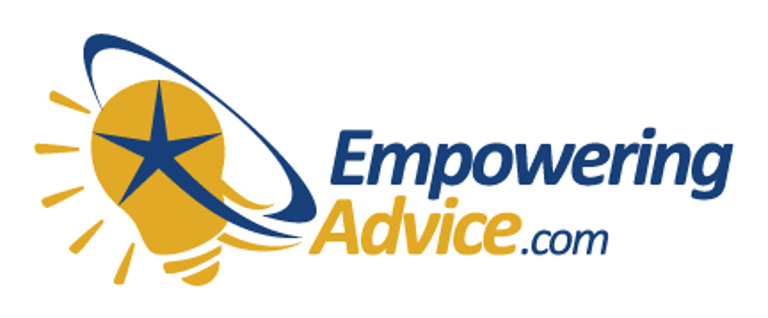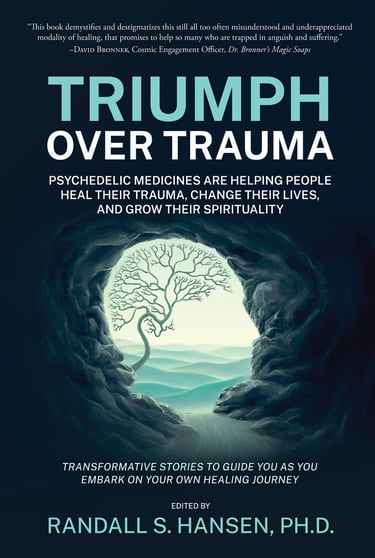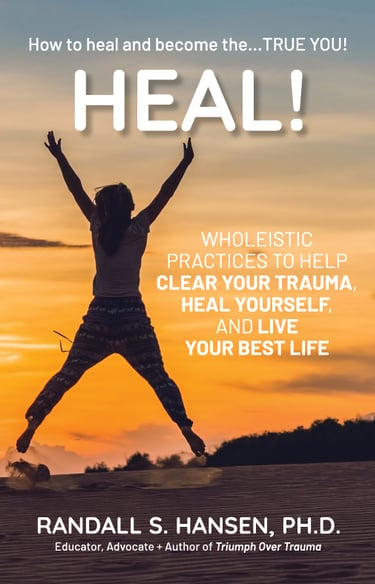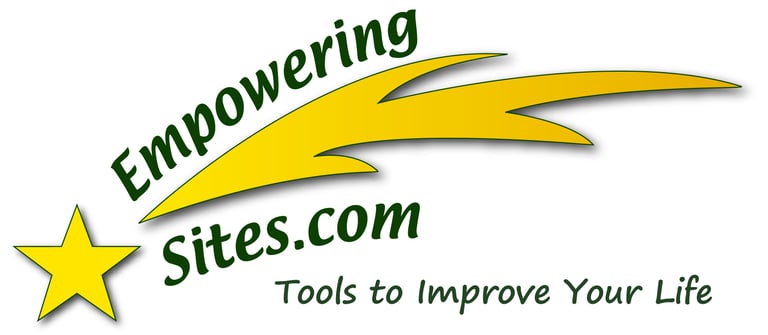Why Should I Consider Psychedelics?
The first in a series of articles designed for those who are psychedelically curious and interested in understanding what psychedelics involve and what these substances can do for people. From the author of Triumph Over Trauma.
If you are asking yourself this question, you are more than halfway to a new and very different kind of healing and transformative experience.
What are Psychedelics?
Psychedelics, also referred to as hallucinogens, entheogens, or empathogens, are psychoactive substances that produce alterations in conscious experience. Traditional psychedelics (including LSD, psilocybin, mescaline, and DMT) affect the brain's serotonin system, primarily by binding to the serotonin 2A (5HT-2A) receptor. Other substances with known hallucinogenic properties (such as ketamine, MDMA, Ibogaine, and others) have different targets in the brain but still produce some psychedelic effects.
Why Are People Trying Psychedelics?
Here are some of the reasons that people are turning to psychedelics -- to the intentional use of one or more of these psychedelic medicines:
Last hope after trying all other modalities to treat a mental health condition;
Seeking true healing (from mental wellness concerns) rather than the temporary fix that current pharmaceutical drugs deliver -- at best;
Quitting an addiction (to drugs, alcohol, tobacco);
Simply curious about the medicines after hearing/seeing other accounts;
Pursuing a deeper (or true) spiritual connection to the Divine, the Creator, God;
Overcoming one or more hurdles holding you from achieving greatness/success;
Desiring self-improvement, whether a greater appreciation for life or enhanced creativity;
Wanting to expand consciousness, journey to other realms.
One of the most fascinating aspects from the research being conducted on psychedelics is the power of these medicines to rewire the brain, deleting old and useless connections and replacing those with new and positive thought patterns. We used to think the brain stopped growing/learning by around age 25, but scientists are seeing psychedelics positively change the brain, making it more plastic and receptive to change -- something called neuroplasticity.
Are Psychedelics Dangerous?
Psychedelics are the LEAST dangerous substances, when used correctly and with preparation and intention. In fact, that can of nutmeg in your kitchen is much more dangerous than any psychedelic.
We have been fed five+ decades of lies about these substances. The War on Drugs has promoted a number of lies about these medicines. They will not fry your brain, damage your DNA, affect your eggs or sperm -- and they are not addictive, like most "street" drugs.
EVERY single other drug category, from alcohol to opioids to heroin, are MUCH more dangerous than psychedelic medicines. In fact, more than 600,000 people die annually from "legal" drugs -- and more than 700,000 in total... Deaths per year:
500,000 deaths related to tobacco
100,000 deaths related to alcohol
92,000 deaths from illicit drug overdoses
30,000+ deaths related to pharmaceuticals
<20 deaths related to psychedelics
That said, should psychedelics be treated with respect and caution? Of course. Some people will always abuse medicines and some will continue taking psychedelics for recreational purposes, but what we're discussing here is the intentional use of these medicines.
In terms of the psychedelic experience, some people only need one experience to completely transform their lives, while others may need to occasionally return to get the additional brain benefits. The key point here is that unlike most pharmaceuticals, you will not need to be taking a psychedelic medicine every day for the rest of your life.
Aren't Psychedelics Illegal?
While there are several decriminalization and therapeutic-treatment movements afoot, both at the local level and the federal level, all psychedelic substances are considered illegal for personal use.
The only "psychedelic" medicine that is legal when administered at a licensed clinic is ketamine, which is a dissociative with psychedelic/hallucinogenic properties.
All psychedelics, along with a strange collection of other drugs and substances, are considered "controlled substances" because they were made illegal in 1971 under the Controlled Substances Act. With the exception of ketamine, which is considered a Schedule III drug, all psychedelics are considered Schedule 1 drugs -- which by definition means they have no medicinal value and high potential for addiction, both of which are patently false... but this law, signed by President Nixon, was purely political.
-Schedule I drugs: mescaline, psilocybin, LSD, MDMA, DMT, ibogaine, cannabis, and heroin
-Schedule II drugs: cocaine, crystal meth, opium, morphine, OxyContin, PCP, Adderall
-Schedule III drugs: ketamine, steroids, hydrocodone, Vicodin, testosterone
-Schedule IV drugs: Ambien, Ativan, Xanax, Equanil, Valium, rohypnol.
That said, there is a movement afoot to clearly prove the therapeutic benefit from the intentional use (vs. recreational use) of psychedelic medicines -- and move as many of the psychedelic substances off of Schedule I to expand their therapeutic use. Some experts are expecting MDMA and psilocybin to be approved by the FDA for use in therapy later this year or early 2024. LSD is also in the mix.
Furthermore, the current psychedelic renaissance also includes a push for the decriminalization of all psychedelics, reducing the enforcement of drug laws for small amounts for personal use. Cities like Seattle, Oakland, Ann Arbor, and Washington, DC, and states such as Colorado and Oregon have crafted laws decriminalizing (but not making legal) some psychedelics for personal use and possession of small amounts.
Where/How Can I Try Psychedelics?
Given the current legal status of psychedelics, the only way to legally receive psychedelic therapy is through one of several clinical trials taking place or going to a healing/retreat center in countries where the psychedelics are legal.
Of course, there is an underground market of healing centers, as well as several "psychedelic" churches in the U.S., but you face hurdles there as well due to the current legal landscape.
One other option, which seems to be somewhat of a loophole in the laws, is to try microdosing psychedelics. Several companies currently supply and ship microdosing capsules directly to your home, but be forewarned that there are a lot of fake microdosing companies looking to take your money.
Microdosing is taking such a small amount (sub-perceptual) of a psychedelic substance that it is imperceptible; that is, there is no tripping, no hallucinating with microdosing, but you still get many of the benefits. One caveat is that the research with microdosing is limited, but research is ongoing.
Final Thoughts on Why Psychedelics
Psychedelics are NOT for everyone, but they are, in general, very safe medicines -- certainly safer than alcohol and tobacco. If you are open to them, these compounds can offer you physical, psychological, and spiritual healing. Many of these medicines are also heart-opening, making you more receptive to what you see and learn from the journey.
People need to be fairly physically healthy and mentally sound when taking psychedelics -- no serious heart or respiratory conditions. The biggest concern is people with schizophrenia or with schizophrenic tendencies, who may experience a psychotic break from a psychedelic experience. There is a concern of negative impact for true bipolar and personality disorders, although these populations have not been adequately studied.
Obviously, before you do anything related to your health, check with your doctor or therapist and do your own research before making any final decisions.
Want to learn more? Use the resources below and/or buy my new book, Triumph Over Trauma.
Additional Psychedelics & Psychedelic Medicine Resources
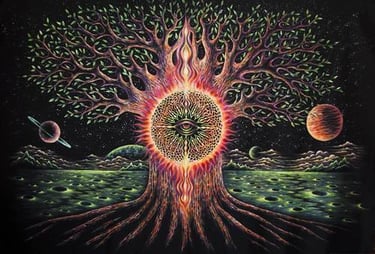

Dr. Randall Hansen is an advocate, educator, mentor, ethicist, and thought-leader... helping the world heal from past trauma. He is founder and CEO of EmpoweringSites.com, a network of empowering and transformative Websites, including EmpoweringAdvice.com.
He is the author of the groundbreaking Triumph Over Trauma: Psychedelic Medicines are Helping People Heal Their Trauma, Change Their Lives, and Grow Their Spirituality and the well-received HEAL! Wholeistic Practices to Help Clear Your Trauma, Heal Yourself, and Live Your Best Life.
Dr. Hansen's focus and advocacy center around true healing ... healing that results in being able to live an authentic life filled with peace, joy, love. Learn more by visiting his personal Website, RandallSHansen.com. You can also check out Dr. Randall Hansen on LinkedIn.
